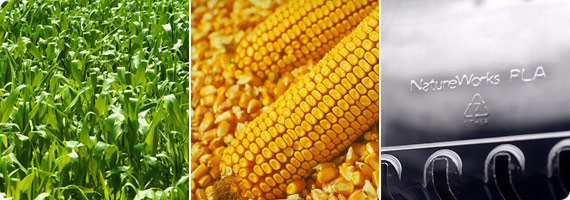A popular biodegradable plastic is polylactide, or PLA. PLA is a synthetic polyester that biodegrades within a year, decaying much faster than conventional petroleum-based plastics. The creation of PLA, a bio plastic, involves bacterial fermentation, similar to the fermentation in the synthesis of PHAs. This fermentation creates lactic acid, which is then polymerized. Furthermore, PLA is biocompatible and can be utilized in biomedical applications, such as in medical plates and screws that can be degraded and absorbed by the body. PLA is brittle, thermally unstable, and hydrophobic. PLA degrades by hydrolysis with no need for external enzymes, but creates a large build-up of lactic acid during degradation, which can cause problems in biomedical applications.
